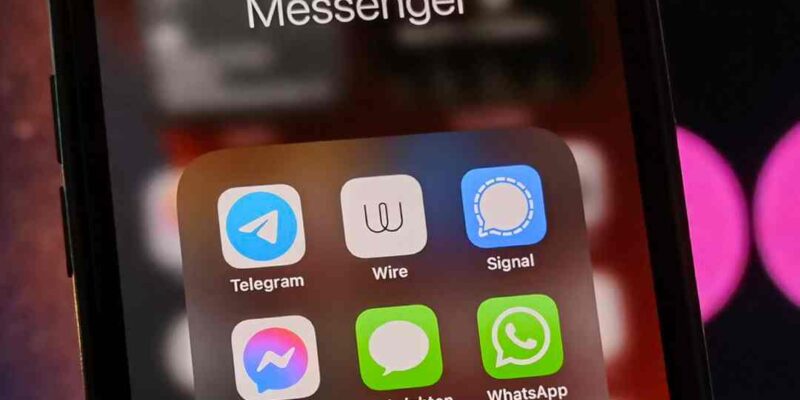Encrypted messaging app Sign says it’s seeing a swell of recent customers signing up for the platform, a lot in order that the corporate is seeing delays in telephone quantity verifications of recent accounts throughout a number of cell suppliers.
As for what or who’s chargeable for so many new customers involved in making an attempt the platform, which is operated by the nonprofit Sign Basis, there are two seemingly culprits: Tesla CEO Elon Musk and Sign competitor WhatsApp.
Verification codes are at present delayed throughout a number of suppliers as a result of so many new persons are making an attempt to affix Sign proper now (we are able to barely register our pleasure). We’re working with carriers to resolve this as shortly as attainable. Hold in there.
— Sign (@signalapp) January 7, 2021
Musk, who’s now the world’s richest particular person after surpassing Amazon CEO Jeff Bezos in internet price, tweeted a meme final evening criticizing Fb for its position in serving to members of the mob that stormed the US Capitol on Wednesday manage on-line. The tweet, a picture of a collection of ever-larger dominos, juxtaposed the beginning of Fb as a hot-or-not women-rating web site on the campus of Harvard College all the way in which right into a platform that in a method or one other helped facilitate the assault on Congress on Wednesday whereas it tried to certify Joe Biden because the president-elect.
That is referred to as the domino impact pic.twitter.com/qpbEW54RvM
— Elon Musk (@elonmusk) January 7, 2021
Musk, who has been extra vocal in his criticism of Fb in recent times, adopted up the meme with a suggestion to his 41.5 million followers: obtain Sign, presumably as a substitute of utilizing a Fb product (though Musk didn’t name out Fb or WhatsApp particularly by title in both of his posts).
Use Sign
— Elon Musk (@elonmusk) January 7, 2021
As for the WhatsApp controversy, that’s a bit extra difficult. Whereas it’s not instantly clear whether or not Musk was referencing or is even conscious of the present WhatsApp privateness dustup, there’s a rising backlash towards the Fb-owned messaging app ensuing from the corporate’s plans to implement a brand new privateness coverage on February eighth.
There’s an excellent explainer from Ars Technica right here, however the quick model is that WhatsApp has outlined a brand new privateness coverage going into impact subsequent month that not contains language indicating it can enable customers to decide out of information sharing with guardian firm Fb. As a substitute, the brand new coverage expressly outlines how WhatsApp will share knowledge (stuff like your telephone quantity, profile title, and tackle e-book information) with Fb.
“As a part of the Fb household of firms, WhatsApp receives info from, and shares info with, this household of firms,” the brand new privateness coverage says. “We could use the data we obtain from them, and so they could use the data we share with them, to assist function, present, enhance, perceive, customise, help, and market our Providers and their choices.”
Fb says its new privateness coverage adjustments nothing about client knowledge sharing
As Ars stories, the decide out hasn’t truly existed within the app for a while — it was a one-time possibility launched again in 2016, and WhatsApp’s privateness coverage has saved language referencing it since. A Fb spokesperson tells The Verge that the adjustments going into impact subsequent month are designed to handle knowledge sharing between Fb and WhatsApp with regard to messaging with companies, and that nothing is successfully altering with regard to client chats.
Fb says it disclosed these adjustments again in October with the announcement of recent WhatsApp customer support and purchasing options, a few of which went reside final month. It additionally says it can honor any WhatsApp consumer’s opt-out choice, though the choice to decide out hasn’t been out there for brand new customers for years, in keeping with PCMag. And when you reside in Europe, WhatsApp gained’t share knowledge with Fb for ad-targeting functions below any circumstances, as clarified by Niamh Sweeney, WhatsApp’s director of coverage for the Europe, Center East, and Africa market, in a Twitter thread.
2/5 It has been incorrectly reported that WhatsApp’s newest Phrases of Service and Privateness Coverage replace requires customers within the European Area to comply with the sharing of information with Fb for advertisements functions to be able to proceed utilizing the service. That is false.
— Niamh Sweeney (@NiamhSweeneyNYC) January 7, 2021
However what’s occurring now seems to be a little bit of context collapse on social media, as WhatsApp customers assume they’re now being pressured to share knowledge with Fb though that’s been occurring all alongside in the event that they didn’t decide out again in 2016. None of that is helped by Fb and WhatsApp’s current assaults on Apple for the iPhone maker’s resolution to mandate new self-reported labels on iOS apps and its future plans to drive app makers to request permission to trace Apple machine house owners.
The brand new privateness coverage discover doesn’t assist Fb’s trigger, both, contemplating it tells customers displeased with the adjustments — which, once more, are about how companies handle their chats on WhatsApp utilizing Fb’s backend — to “delete their account,” with no different treatments offered.
All of this has created an ideal storm on social media wherein WhatsApp customers look like fleeing the platform in giant numbers to affix Sign, a nonprofit-run encrypted messaging app not owned by the most important social community on the planet. It’s price mentioning too that Sign Messenger, LLC, the software program group that manages product improvement from Sign, was co-founded and funded by Brian Acton, the disillusioned WhatsApp co-founder who has publicly slammed his former employer’s privateness practices.
The silver lining for Sign is that this mixture of occasions is producing an entire lot of curiosity for its platform as each a viable cell messaging app and different to the Fb ecosystem.
In response to the controversy, WhatsApp has issued a prolonged assertion clarifying that the up to date privateness coverage “doesn’t change WhatsApp’s knowledge sharing practices with Fb”:
As we introduced in October, WhatsApp needs to make it simpler for individuals to each make a purchase order and get assist from a enterprise immediately on WhatsApp. Whereas most individuals use WhatsApp to speak with family and friends, more and more persons are reaching out to companies as nicely. To additional improve transparency, we up to date the privateness coverage to explain that going ahead companies can select to obtain safe internet hosting companies from our guardian firm Fb to assist handle their communications with their prospects on WhatsApp. Although in fact, it stays as much as the consumer whether or not or not they need to message with a enterprise on WhatsApp.
The replace doesn’t change WhatsApp’s knowledge sharing practices with Fb and doesn’t influence how individuals talk privately with pals or household wherever they’re on the planet. WhatsApp stays deeply dedicated to defending individuals’s privateness. We’re speaking immediately with customers via WhatsApp about these adjustments so that they have time to overview the brand new coverage over the course of the following month.
Replace January seventh, 4:42PM ET: Added assertion from WhatsApp.















Comments